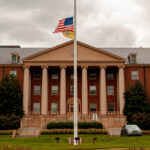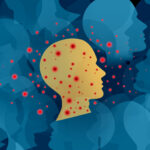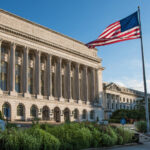In 2014, the controversial science blogger Razib Khan announced that he’d acquired an in utero sample of his son’s tissue and had the genome sequenced. This gambit — achievable for Khan as a graduate student in a university genetics lab — made his son an Internet sensation that year as the first “healthy person” ever to have his entire genetic sequence established before birth.
But Khan’s very public decision also — and likely unintentionally on Khan’s part — illuminated a critical set of ethical questions around prenatal genome sequencing and personal genetics. He was quoted as describing his decision as “more cool than practical,” adding that his son’s genetic sequence was “pretty boring” overall. In the world of genetic analysis, “boring” can be taken as good news, at least based on our current understanding.
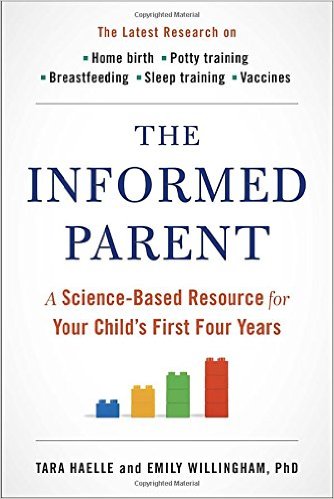
WHAT I LEFT OUT is a recurring feature in which book authors are invited to share anecdotes and narratives that, for whatever reason, did not make it into their final manuscripts. In this installment, authors Emily Willingham and Tara Haelle share a story that didn’t make it into their latest book “The Informed Parent: A Science-Based Resource for Your Child’s First Four Years.”
But his insouciant choice to do the sequencing, which is becoming readily available to consumers, raises unanswered questions both for his family and for society in general. How useful will some, any, or all of this personal genetics information be to you? How much do you want others to know about it? Who has the right to make these decisions for themselves or a child?
All of these questions matter for parents considering a dive into the details of the family gene pool. After all, your genes aren’t yours alone. You got them from your parents, and your biological children will get some of yours from you. The phrase “personal genetics” implies risk for the individual alone, but in reality, the revelations — and repercussions — can span generations.
And no one quite knows what the repercussions might be. Those sequences hold information that currently lies in a netherworld of indecision about how it can be used for or against a person, how authorities or insurance companies or policymakers might take advantage of it, how the knowledge itself might influence a person’s outlook and self-perception.
Before Khan knew his child was a “healthy person,” his decision to sequence his son’s genome was a gamble of immense proportions. Those rows of genetic letters pulled from in utero didn’t contain information only about Khan’s son. They carried genetic secrets from Khan, his wife, and their parents, as well.
Straight-to-consumer genetic testing makes these issues important for all of us. For a hundred bucks or so and some spit in a vial, we can find out quite a bit about our personal genetics, and for a thousand dollars, we can, like Khan, access an entire genomic sequence. Where does the information take us, and which family members are we dragging, willingly or not, along on the ride?
Whether it’s getting your genome sequenced or homing in on specific sequences associated with disease risk, the pitfalls are similar and so are the benefits. You may learn information that’s actionable and useful, but you might also uncover unwanted surprises.
Some companies use the DNA in that spit you send to calculate your personal risks for diseases like breast cancer. They don’t sequence your genome, the way Khan parsed out every letter of his son’s genetic code. Instead, they look specifically for tiny changes in regions that have been linked — only mathematically in most cases — to risk for a given condition. These changes, or SNPs (pronounced “snips”), carry labels like rs9273363, which look meaningless to the average consumer.
To geneticists, though, these labels do have meaning. SNP rs9273363 is linked to a bumped-up risk of developing Type 1 diabetes. Emily, an author of this piece, learned from a genetic test that she carries this particular SNP along with three more related variants. According to the summary from the company that did her analysis, compared with someone who lacks these little changes, Emily has a 4.4 times greater risk of developing Type 1 diabetes.
That may look significant, but the trick is keeping it in perspective. The overall risk is one in 100, meaning that one of every 100 people on average develops Type 1 diabetes, but 4.4 of every 100 people with Emily’s complement of SNPs do so. Almost 4.5 times sounds big until you consider that it also means that about 95 or 96 people with this exact same SNP profile will not have Type 1 diabetes.
Emily, as it happens, does not have the disease. She had the testing done almost a decade ago, and she has no idea if she passed some or all of those risk alleles to her children. Neither she – nor anyone knows – whether there are other economic implications; for instance, whether life insurance bean counters might someday incorporate information like that into their cost calculations.
As with every decision we make, risk versus cost is the calculation that underlies — or should underlie — our thoughtful choices about personal health. The risk of unwarranted anxiety can be important in considering personal genetics testing. Think about how you’d react if you learned that your Type 1 diabetes risk is 4.4 times the average, or your child’s genome sequencing results turned up changes linked to a disease of concern.
Clinicians seem to fret a lot about making people anxious. As an example, discussions around breast cancer screening can focus to the point of obsessiveness on causing unnecessary anxiety for women. But it’s also worth considering whether clinicians worry too much about worry.
Researchers at the University of California-San Diego discuss consumer genomics and what it might mean for the end user.
The psychological risk of having such genetic information in hand is small, according to some research. A 2011 New England Journal of Medicine report describes the effects of such knowledge on more than 2,000 people surveyed. The researchers found that having this information did not significantly increase anxiety symptoms; more than 90 percent of the study participants showed no indications of test-related distress. Some participants completed screening tests or planned to increase the frequency of their testing as a result of their disease-related risk information.
That study looked at short-term effects on individual anxiety, at about six months post information exposure, and found none. The lead researcher on that study, Cinnamon Bloss of the University of California, San Diego, and her colleagues also took a look at longer term stress effects. They reported those findings in 2013 in a paper in the Journal of Medical Genetics. In the subjects who participated in the long-term follow-up, at an average interval of 14 months, the team again found no real spike in anxiety.
In fact, more than a third of the participants shared their information with their doctors, and almost two thirds thought the information was useful. In their 2011 study, the Bloss team found that having information about risks boosted screening rates or plans to have appropriate screening for conditions including colon cancer, Type 2 diabetes, and breast cancer. This suggests that that information that leads to appropriate preventive care seems like a good thing, and concerns about anxiety may be overblown.
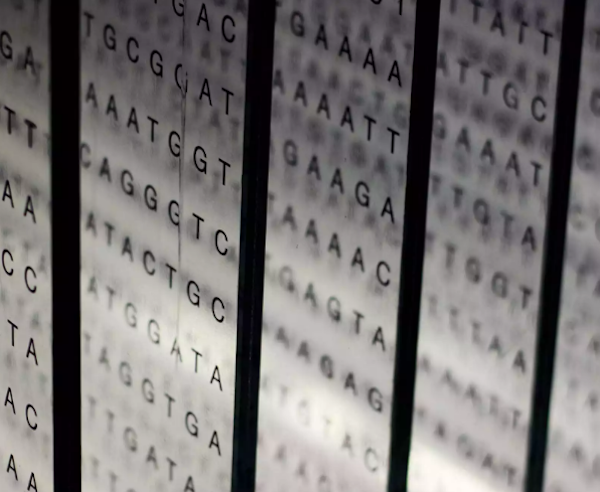
RELATED STORY: Vast collections of DNA data could lead to very real advances in medicine. But they also could be used — or misused — by third parties for a variety of reasons.
All of that worry about anxiety focuses on an individual’s genetic risk. But what you discover about your own genetics as a parent also holds repercussions for your biological children. You have to make decisions at some point about this information and what you want to share and not share with them. Which risks matter? Which risks probably aren’t, well, that risky? Having this knowledge in hand at an early age might empower useful lifestyle choices that reduce environmental risks for, say, Type 2 diabetes.
But other biological relatives also could be unwitting participants in your genetics exploration, vulnerable to negative repercussions from direct-to-consumer genetics testing, whether it’s full genome sequencing or SNP analysis. One concern is how the health care industry might use the data, not only for you but also for close relatives.
Then there are the personal revelations about health — Emily has yet to unlock the results of a test for Alzheimer disease risk — and the possibility of surprises about others in the gene pool with you. At least one of these services offers a relative search that automatically matches people who show close relatedness. You probably don’t want to end up like the university instructor who gave the spit kits to his parents one year, only to find a secret in the family genetics closet in the form of a half-brother he didn’t know he had — and that his mother didn’t know he had, either. The news led his parents to divorce and splintered the family.
When you spit in that vial for SNP analysis or have a full genome sequenced, you could be exposing others who didn’t sign on. As the man with the unknown half-brother noted, opting into the “family finder” on these consumer sites means participating in what “are essentially really advanced paternity tests.”
It’s just one of the many unforeseen repercussions of mining our genomes, which after all, contain information about not just ourselves but also the people who came before us and those who come after. We feel certain that the future holds many, many more surprises for all of us, Razib Khan — and his son — included.
Tara Haelle writes about parenting and science for Slate, NPR, Forbes, and Scientific American. Emily Willingham, Ph.D., is a Forbes contributor who writes frequently about parenting and scientific controversies.



